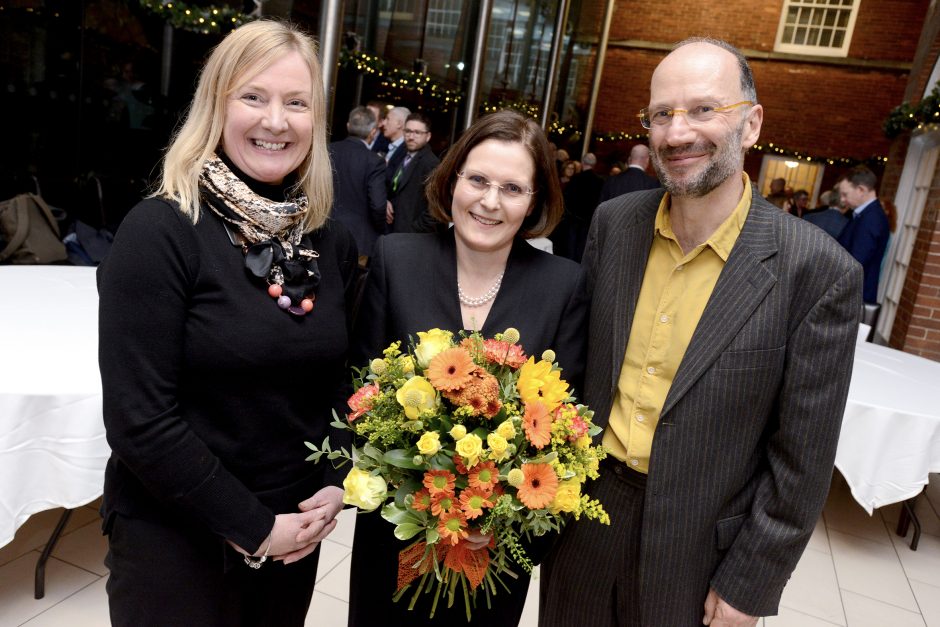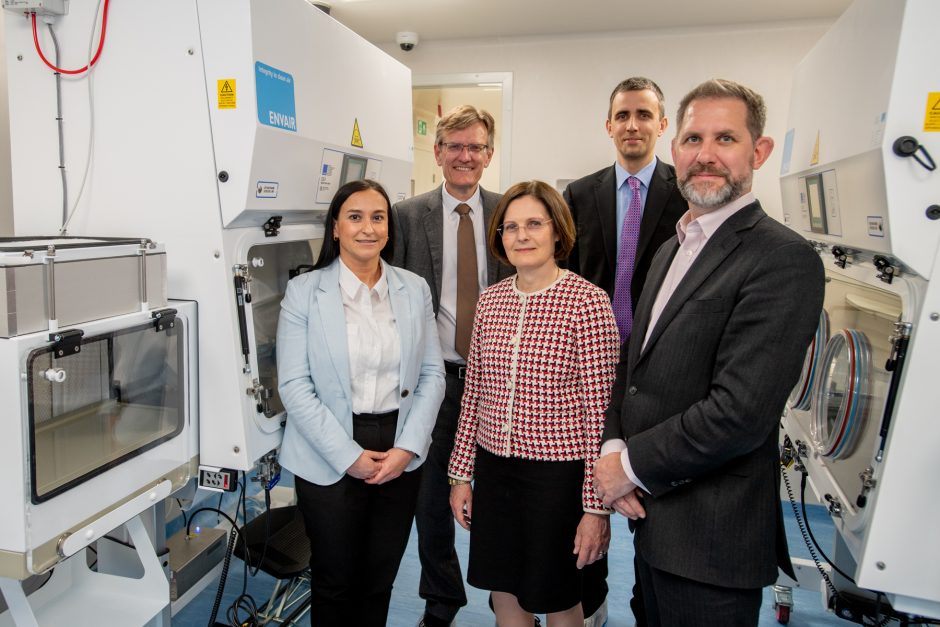“A co-op is about providing something that people need, and doing it collectively,” says Ursula Lidbetter. “You’ve got to be connected to the people you are trying to serve. I always say we’re just the hired help.”
Lidbetter, who is getting ready for her retirement, has been with Lincolnshire Co-op for 37 years – the last 18 as chief executive. The key to the society’s success, she says, is remembering that “it’s the people who are this co-op”.
“They’ve recruited us to try to organise the things that they want, but we’ve got to be listening to them all the time and finding ways of engaging them,” she says. “It’s very easy to let people just be customers. But actually, if we’re going to be purposeful and therefore successful, buy-in from members is vital. We’ve got to know what they’re thinking, what they’re wanting, what they’ll be wanting next.”
Lidbetter was brought up in Lincoln “with a lot of values”, but her route into co-operation came via a leaflet for a Co-operative College course found in the careers room at the University of Hull, where she achieved a first-class honours degree in operational research.
During the five-month graduate scheme at the College’s Stamford Hall, students learned about retailing and the co-op movement, and spent time at different co-ops around the country. “When it came to the end of the course, the various societies interviewed us all and picked who they wanted. I could have ended up anywhere, but it was Lincoln that said, ‘well, you’re from here, so why not come back?’”

She started out in department stores, serving on tills and filling shelves, later becoming the buyer for glass, china and gifts. She ran the department store chain, and set up a chain of cafés. Later she trained as company secretary, and was appointed CEO in 2004. In 2019, she was awarded the OBE for services to the local economy.
Lidbetter has witnessed some huge changes at the society – the starkest being evolving technologies. “Early on I used to do all the new food store developments, working out where sites should be. There was no way of working out populations – you couldn’t just Google it – so I remember sellotaping tracing paper over huge maps to find parish boundaries to work out what the populations were of these places.
“Dividend stamps were also quite an innovation at the time, and now we’ve moved to the dividend card and the dividend app. When I started, we had price guns, you had to label every single product you wanted to sell. And then it went to scanning. And now from next year, we’re looking at electronic shelf edge labels.”
The businesses Lincolnshire is involved in have changed too. “Over the years we stopped doing things like dairy, department stores and car sales, things that weren’t as relevant and didn’t have as much social purpose. But what has remained is our food stores, pharmacies, post offices and funeral homes. The physical presence in communities, that’s the bit that we are uniquely placed to do. Because we know the place, we’re connected to people, understand their needs and respond to them.”
Another thing Lidbetter has helped develop internally “is not just thinking about Lincolnshire Co-op as a retailer, a seller of things to people here, but thinking about how we can use our assets – our capital, buildings, people, connections – differently to pursue the purpose of making life better in communities”.
The purpose has manifested in the society helping to drive local economic development through large-scale property schemes such as the Lincoln Science and Innovation Park (which houses facilities making aseptic drugs for chemotherapy patients), created in 2012. It also led the regeneration of the Cornhill Quarter, a multi-million-pound scheme to revitalise and restore Lincoln’s city centre.
And in 2005, the society was involved in building a memorial in France for soldiers killed in the Battle of Loos in the First World War. Local historians found the site where many Lincolnshire regiment soldiers died in the Hohenzollern Redoubt; the bodies were never recovered and the site was used as a rubbish dump, but after the discovery, the landowner invited a memorial to be placed there instead.
“All this stuff has been difficult,” says Lidbetter, “but we always say if it’s difficult, it’s probably for us. If it’s easy, someone else will do it and that’s fine. They can get on with it. If it’s difficult and it needs lots of partners and patience, those are the sorts of things that we’re looking to do, because they wouldn’t be done without us.”

One of her legacies at the society is a strategy document detailing how this works. “We call it the funnel: you go out and find what’s needed and stick it in the top of the funnel – then you sort and sift, and out of the bottom comes something that is a solution to a problem somewhere.
She adds: “I’m so proud we have developed this way of doing things which people find stimulating and engaging. We have very high levels of engagement and satisfaction from our 300,000 members, our colleagues and even from our tenants now. It’s easy to sell people a pint of milk but to get people to love how you go about things is, I think, quite an extraordinary achievement.”
Alongside her role at Lincolnshire, Lidbetter served as chair of the Co-operative Group from 2013 to 2015, leading it through a period of major reform. Why was she chosen for the task?
“I think I’m fairly plain speaking and I had been on that board since 2009. I’m a person who doesn’t just go with the flow, I spoke up about things that I thought were probably not on the right path and I spoke the truth as I saw it.” She admits it was tough. “It was complex, really high stakes. But one thing that kept me going was the occasional person who would say ‘you know what, I really appreciate what you’re doing.’”
Lidbetter believes that, worldwide, the co-operative way of thinking and doing things is going to be a big part of the future, “because there are so many issues that are about people needing to come together and support and help each other”.
“We know the stories,” she says. “Co-ops come out of need. Look at the world – there is a huge need. I think the core idea of co-operation will continue to reimagine itself, and new ideas and new models are going to emerge, particularly from grassroots thinking in areas like housing, credit unions, social care.”
But she cautions people not to be too hung up on the model or think of ‘co-operation’ as a label to stick on as many things as possible. “It’s not a label. It’s a way of thinking and acting collectively to solve the problems that we have,” she says. “And the co-op way of thinking and acting is going to be a big part of the future, because there are so many issues that are about people needing to come together and support and help each other – and that’s what it is.
Lidbetter is keeping an open mind about her own future (“I’m going to rest and relax, then when I’ve done that for a bit, I’ll find out what else I’d like to do”), but is leaving Lincolnshire with fond memories.
“Everybody in co-ops is so engaged in what we’re trying to do. And I’d just like to say to you all: keep thinking, keep adapting and keep innovating. Use your passion to do something that’s really important in your life, for people around you, for the things that you believe in. Because the movement still has great passion. Just imagine what it could be in the future, and then try and reach it. Thank you for being there for me.”